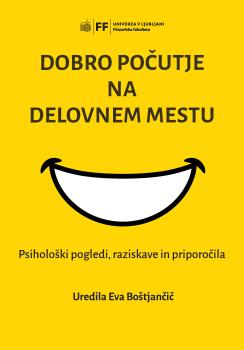Student Work: A Pain or a Gain? – A Study of Well-Being and Work Engagement on a Sample of Slovenian Students
Synopsis
In Slovenia, where a notable percentage of students are actively employed, student work is becoming a crucial factor in their personal and professional development. The purpose of this study was to examine the well-being and work engagement of these students and their correlation with hourly wages, work experience, the coordination of work and study, and also the physical strain of work. The study involved 377 working students from across Slovenia, aged between 18 and 28. The sample consisted of 251 females, 123 males and three participants who did not specify their gender. Students engaging in part-time work experience various levels of well-being and work engagement. The results of this analysis revealed that the intrapersonal dimension of well-being is crucial in predicting work engagement, prevailing over the interpersonal dimension. Surprisingly, higher payment only weakly influences work engagement, while a higher hourly wage strongly correlates with well-being. The duration of student employment positively affects well-being, whereas the physical strain of work reflects in lower commitment. The study indicates that the coordination of study and work contributes to minimal conflicts and positively influences the work engagement and well-being of students. The discussion elaborates on the significance of well-being and work engagement in student employment and the limitations of this study. The findings provide practical guidelines for designing jobs that would enhance students’ well-being and, consequently, increase work engagement.
Downloads
Pages
Published
License

This work is licensed under a Creative Commons Attribution-ShareAlike 4.0 International License.


